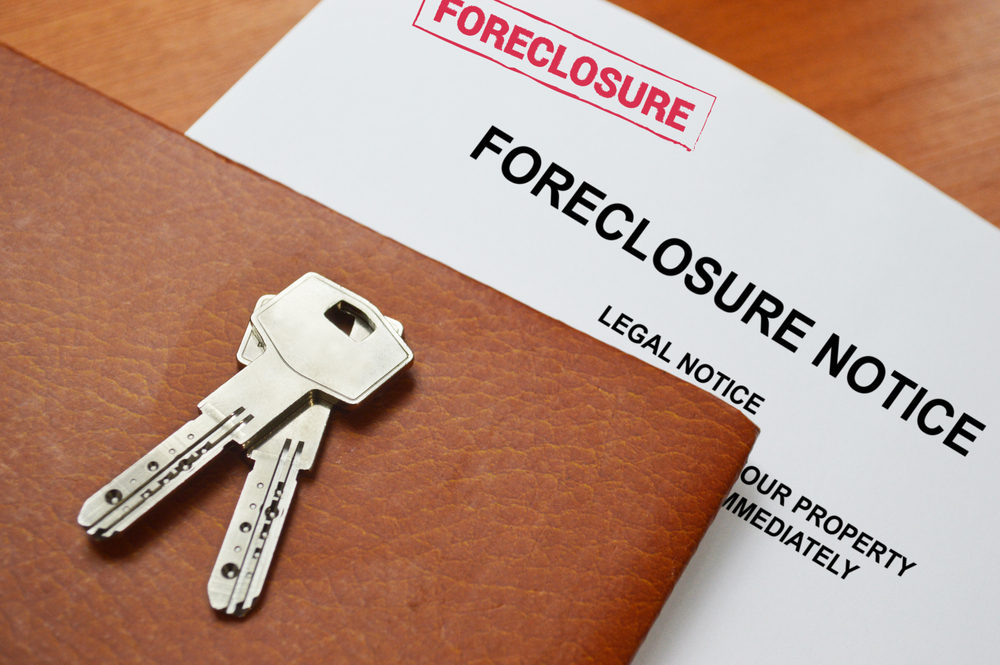Did you know that New York ranks among the top ten states in the U.S. for solar installations, with over 3,200 megawatts of solar capacity installed? As more homebuyers seek sustainable living options, properties equipped with solar panels are increasingly in demand.
Selling a house with solar panels can be a breeze with the right knowledge. Solar energy is no longer just a futuristic concept; it’s a practical and valuable asset for many homeowners in New York. However, the process of selling a solar-equipped home involves unique considerations that can influence your selling strategy and the overall value of your property.
In this article, we will explore the impact of solar panels on home value, navigate common concerns potential buyers may have, and discuss the intricacies of transferring ownership or managing financing options for your solar panels. Whether you’re looking to highlight energy savings, appeal to eco-conscious buyers, or address financing hurdles, understanding these aspects can help you maximize your sale and ensure a smooth transaction.
1. Do Solar Panels Increase Home Value in New York?
The presence of solar panels on a home can increase its market value, a trend that’s particularly evident in eco-conscious states like New York. Various studies and reports have consistently shown that homes equipped with solar energy systems tend to sell for a premium compared to similar homes without them.
For instance, a study conducted by the Lawrence Berkeley National Laboratory found that homebuyers are willing to pay an average of $15,000 more for a house with an average-sized solar photovoltaic system. This aligns with findings from the National Renewable Energy Laboratory, which reported that homes with solar panels tend to sell 20% faster and for 17% more than homes without solar installations.
Several factors contribute to the value boost provided by solar panels:
i. Size of the Solar System:
The capacity of the solar panel system plays a significant role. Larger systems that can generate more electricity typically offer greater value because they promise higher energy savings over time.
ii. Location:
The geographic location of the property within New York can affect the value increase. Homes in areas with higher electricity rates and greater sunshine potential see more significant benefits. For instance, properties in downstate New York or Long Island, where electricity costs are higher, may experience a more substantial value boost from solar installations.
iii. Age and Condition of the Solar Panels:
Newer systems with modern, efficient panels can add more value than older, less efficient systems. Buyers are often looking for installations that will not require immediate maintenance or upgrades.
iv. Ownership vs. Leasing:
Whether the solar panels are owned outright or leased can impact the perceived value. Owned systems generally add more value since the buyer will not inherit lease payments.
By understanding these factors, homeowners in New York can better assess the potential value increase provided by their solar panels and effectively communicate this advantage to prospective buyers.
3. Benefits of Adding Solar Panels Before Selling
Adding solar panels to your home before selling can offer several compelling advantages that attract potential buyers, making your property stand out in the competitive New York real estate market.
i. Lower Energy Bills and Cost Savings:
One of the most significant benefits of having solar panels is the reduction in monthly energy bills. Solar panels generate electricity from the sun, which can substantially lower the amount of electricity a home needs to purchase from the grid. Buyers are increasingly attracted to homes with solar installations because they promise significant long-term savings on utility costs. This factor can be particularly appealing given New York’s relatively high electricity rates.
ii. Environmentally Friendly Features and Sustainability Appeal:
Today’s homebuyers are more environmentally conscious than ever. Homes equipped with solar panels appeal to these buyers by offering a tangible way to reduce carbon footprints and contribute to environmental sustainability. Solar panels signify a commitment to green living, which can be a strong selling point for eco-conscious individuals and families.
iii. Increased Energy Independence:
Solar panels provide homeowners with a degree of energy independence, particularly valuable during peak hours or times of high electricity demand. By generating their own power, homeowners can become less susceptible to price fluctuations and potential shortages in the energy market. This energy autonomy is an attractive feature for buyers looking to minimize their dependence on traditional utility companies.
iv. Reduced Reliance on the Grid:
Homes with solar panels are less reliant on the electrical grid, which can be beneficial in areas prone to outages. This reduced dependency not only enhances energy security but also offers peace of mind during storms or other disruptions that could affect grid reliability. Buyers are often willing to pay a premium for this increased resilience and reliability.
v. Potential for Tax Credits or Incentives:
New York State offers various incentives for solar panel installations, which can make these systems even more attractive to prospective buyers. The New York State Energy Research and Development Authority (NYSERDA) provides rebates and incentives for solar energy systems. Additionally, homeowners can benefit from the Federal Investment Tax Credit (ITC), which allows for a significant reduction in federal taxes based on the cost of the solar system. These financial incentives not only reduce the initial cost of installing solar panels but also add long-term value to the home.
By highlighting these advantages, homeowners can effectively showcase the added value of their solar-equipped property, making it more appealing to a broader range of potential buyers.
4. Problems With Selling a House With Solar Panels
While solar panels can significantly enhance a home’s appeal, there are potential concerns that buyers might have. Addressing these concerns proactively can help smooth the selling process and reassure potential buyers.
i. Lack of Knowledge About Solar Systems and Maintenance:
Many buyers may need to become more familiar with how solar systems work or the maintenance they require. This lack of knowledge can lead to hesitation or reluctance to invest in a solar-equipped home.
Addressing Buyer Knowledge Gaps: To mitigate this issue, sellers can provide educational materials that explain the benefits and functioning of the solar system. These materials can include user manuals, maintenance guides, and information on energy savings. Additionally, coordinating with the solar company to offer buyer consultations can be highly effective. These consultations can help buyers understand the system’s operation, maintenance requirements, and benefits, thereby reducing any apprehension they might have.
ii. Financing Complexities With Leased or Loaned Panels:
The financing arrangement of the solar panels can complicate the sale. Owned systems generally add value directly to the property, but leased or loaned systems introduce additional layers of complexity.
iii. Roof Condition and Suitability for Future Panel Maintenance:
The condition of the roof can significantly impact the perceived value and practicality of a home with solar panels. Buyers might be concerned about the current state of the roof and the potential costs or complications associated with future maintenance or panel removal.
Addressing Roof Concerns: Before listing the home, it’s wise to have a professional inspect the roof to ensure it’s in good condition. Providing this inspection report to potential buyers can alleviate concerns. Additionally, explaining the ease with which solar panels can be removed and reinstalled for future roof work can reassure buyers. Highlighting any warranties or maintenance plans that cover the panels and roof can also be beneficial.
By proactively addressing these concerns, sellers can make the process smoother for potential buyers, thereby enhancing the overall appeal and marketability of their solar-equipped homes.
5. Can You Sell A House With Solar Panels?
Absolutely! Selling a house with solar panels is not only possible but also increasingly common and desirable. Homeowners across New York are recognizing the value of solar energy systems and leveraging them to attract buyers and secure favorable sales.
Ownership Options and Their Impact on Selling:
There are different ownership options for solar panels, each with its implications for the selling process:
-
Owned Systems:
If you own the solar panels outright, selling your home is relatively straightforward. The solar panels are considered part of the property, and their value is included in the overall sale price. Buyers appreciate the added benefit of an owned solar system, as it offers immediate cost savings on electricity bills and long-term investment value.
-
Leased or Loaned Systems:
If you have leased the solar panels or financed them through a loan, selling your home requires some additional coordination. Buyers will need to assume the lease agreement or loan obligations associated with the solar panels. While this adds a layer of complexity, it’s certainly manageable with proper disclosure and communication. Providing transparency about the terms of the lease or loan, along with any associated benefits like locked-in energy rates or warranties, can help reassure potential buyers and facilitate a smooth transaction.
Regardless of the ownership arrangement, selling a house with solar panels is entirely feasible and often advantageous. Solar-equipped homes not only appeal to eco-conscious buyers but also offer tangible financial benefits in the form of reduced energy bills and increased property value. With the right approach and guidance, selling your solar-powered home can be a rewarding and successful experience.
6. Transferring Ownership of Solar Panels
Transferring ownership of solar panels to a new homeowner is a manageable process that involves coordination between the seller, the buyer, and the solar company. Here’s a step-by-step guide to help navigate the transfer smoothly:
i. Coordination with the Solar Company:
The first step in transferring ownership is to contact the solar company that installed the panels. They will play a crucial role in facilitating the transfer process. The solar company will need to be informed of the impending sale and will guide both parties through the necessary steps.
ii. Assessment of Solar System:
The solar company will typically conduct an assessment of the solar system to ensure it’s in good working condition and meets all safety standards. Any necessary repairs or maintenance tasks will be addressed before the transfer.
iii. Agreement Between Seller and Buyer:
The seller and buyer must agree on the terms of the solar panel transfer. This agreement should outline each party’s responsibilities regarding the transfer process, including any associated fees or costs.
iv. Transfer of Ownership Documents:
The solar company will provide the necessary paperwork to transfer ownership of the solar panels from the seller to the buyer. This documentation may include a transfer agreement, warranty information, and any applicable permits or certificates.
v. Potential Fees:
There may be fees associated with transferring ownership of the solar panels. These fees can vary depending on the terms of the original installation agreement and the policies of the solar company. Sellers should inquire about any potential fees upfront and factor them into the selling process.
vi. Timeline and Paperwork:
The timeline for transferring ownership of solar panels can vary depending on various factors, including the responsiveness of the solar company and any required inspections or paperwork. In general, the process can take several weeks to complete. Sellers should plan accordingly and ensure all necessary paperwork is completed accurately and promptly.
By following these steps and working closely with the solar company, sellers can effectively transfer ownership of solar panels to the new homeowner, ensuring a smooth transition and a successful sale of their solar-equipped home.
7. Selling a House With Financed Solar Panels
When selling a house with financed solar panels, understanding the type of financing involved is crucial. Here’s a breakdown of the key considerations and steps involved in selling a home with financed solar panels:
1. Secured Loans vs. Unsecured Loans:
- Secured Loans: These are loans where the solar panels serve as collateral. Sellers who have secured loans for their solar panels have the option to pay off the loan before selling the house, which can simplify the process for buyers.
- Unsecured Loans: Unlike secured loans, unsecured loans do not require collateral. Sellers with unsecured loans may face different considerations when selling their home, as the loan may not be directly tied to the property.
2. Benefits of Secured Loans for Sellers:
Paying off a secured loan before selling the house can offer several benefits for sellers:
- Simplified Process for Buyers: Buyers may be more willing to purchase a home with solar panels if there are no existing loan obligations attached to the property. Paying off the loan removes this potential hurdle and streamlines the transaction.
- Increased Property Value: Clearing the loan from the property’s title can increase its market value and appeal to a broader range of buyers.
3. Negotiating with the Lender for Loan Transfer:
Sellers who opt not to pay off the solar panel loan before selling can negotiate with the lender to transfer the loan to the new buyer. This process typically involves:
- Informing the lender of the impending sale and the buyer’s intention to assume the loan.
- Providing necessary documentation to facilitate the transfer, such as the sales contract and buyer’s financial information.
- Coordinating with the lender to ensure a smooth transition of loan responsibilities from the seller to the buyer.
4. Selling with a Power Purchase Agreement (PPA) and Involving the Solar Company:
In some cases, homeowners may have a Power Purchase Agreement (PPA) with the solar company instead of owning the panels outright. When selling a house with a PPA, involving the solar company in buyer negotiations is essential. The solar company can help educate buyers about the terms of the PPA and facilitate the transfer of the agreement to the new homeowner.
By understanding the financing arrangement for their solar panels and taking appropriate steps to address loan obligations, sellers can effectively navigate the sale of their solar-equipped home and ensure a successful transaction for all parties involved.
Conclusion
In conclusion, selling a house with solar panels in New York can be a rewarding endeavor. Solar panels are not just a sustainable energy solution; they’re also a valuable asset that can enhance the appeal and marketability of your home.
Key Takeaways:
- Solar panels can increase the value of your home, reduce energy bills, and appeal to eco-conscious buyers.
- Educating potential buyers about the benefits of solar energy and addressing common concerns can streamline the selling process.
- Understanding the financing options and coordinating with the solar company are essential steps in ensuring a smooth transition for both sellers and buyers.
Ready to sell your solar-equipped home in New York? Contact Cash Buyers NY for a seamless selling experience. Let us help you unlock the full potential of your property and find the perfect buyer who shares your vision for a sustainable future.






